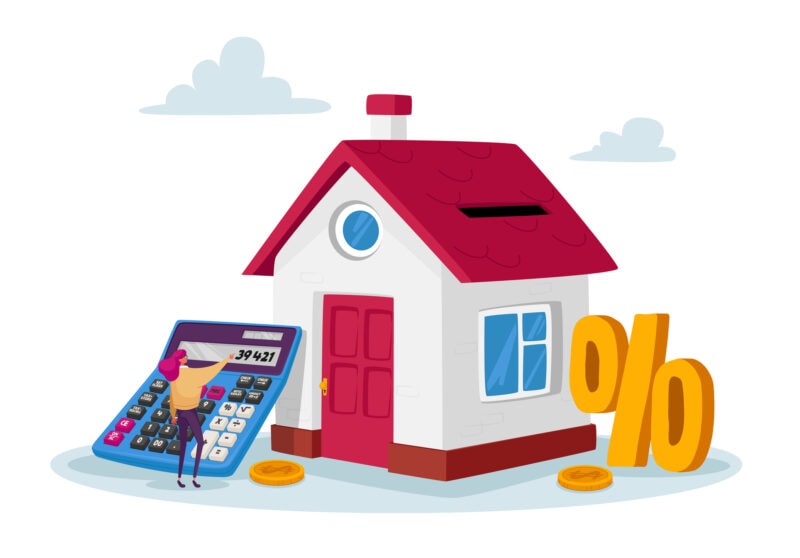
Comparing and Calculating Cost of Living
When you’re looking for a place to settle down and purchase a home, the cost of living is a crucial factor to consider. It impacts everything from housing affordability ...
Conventional fixed-rate loans are a smart option to consider when financing your home, and Summit Mortgage has the insights and guidance you need to make an informed decision. We’ll help you decide if a fixed-rate loan suits your needs or if an adjustable-rate loan might be a better fit.
Conventional loans are qualified mortgages. That means the loan applicant will be reviewed for their ability to repay (employment history), willingness to repay (credit score and history as well as debt obligations), savings/spending patterns, and assets saved for the transaction. Investor requirements drive conventional loan guidelines (Fannie Mae and Freddie Mac primarily), making them reasonably standard among lenders.
A fixed-rate mortgage allows for a lower down payment and credit score when compared to adjustable-rate mortgages. The interest rate is locked in for the duration of the loan term. Fixed-rate loans can be less risky for homebuyers since the principal and interest payments do not change. This type of loan is recommended for homebuyers who intend to stay in the home for more than five years.
An adjustable-rate mortgage (ARM) is typically amortized over a period of 15 to 30 years. That means the loan balance is gradually paid off through regular payments that cover both interest and principal. The interest rate is fixed during an initial introductory period — typically 3, 5, 7, or 10 years. After that period, the rate becomes adjustable and may change to reflect current market conditions. However, ARMs are designed with safeguards. A lifetime cap limits the maximum rate increase over the loan’s duration, and an annual adjustment cap restricts how much the rate can change each year after the initial fixed period. These caps help protect borrowers from significant rate hikes.
If you have a low-to-moderate income level and/or are a first-time homebuyer, the HomeReady® and Home Possible® programs may allow you to qualify for a conventional loan with a slightly lower interest rate and reduced monthly mortgage insurance premiums compared to standard conventional rates. Unlike some other loan products, these programs do not require mortgage insurance for the life of the loan.
If you’ve never had a credit score, you may still be able to qualify for a conventional loan by demonstrating your financial responsibility by other means, such as rent and utility payments.
Fixed-rate loans require a credit score of 620 or higher. Adjustable-rate loans require a credit score of 640 or higher. Some loan programs require as little as 3% down depending on credit and assets. Debt-to-income ratios are generally capped at 50%.
Every borrower’s situation is unique, so each loan application is reviewed by a loan officer, an automated underwriting system (AUS), and an underwriter. To understand your conventional loan eligibility, the best first step is to talk with a Summit Mortgage loan officer. In the meantime, here are some key factors that determine eligibility.
A tri-merge credit report (Experian, Equifax, and Transunion) provides a full credit profile with credit scores, credit history, inquiry history, addresses, and accounts associated with the borrower.
The tri-merge report is used to identify a history of paying bills on time, find judgments or bankruptcies, and assess how much money goes out the door before adding a housing payment.
Lenders and loan officers focus on the most recent two years of employment history. We consider if the person is salaried or hourly, their income sources, the consistency of their pay, and other related factors.
The credit report and employment history determine a debt-to-income ratio. We divide the customer’s monthly debt obligations by their verified gross monthly income.
Lenders and loan officers review the bank statements of the two most recent months for all accounts that will be used to contribute to closing (earnest money, down payment, and closing costs). This ensures there are sufficient funds to close, no undisclosed debts affecting the credit report, and, if applicable, enough reserves to cover future mortgage payments as required by the loan program.
Use these resources to calculate numbers and check your credit status.
It can be. You can avoid paying mortgage insurance when putting 20% or more down at closing. You’ll also find attractive interest and mortgage insurance rates if you have a favorable and established credit history.
If you put down less than 20% at closing, you’ll need mortgage insurance. You can opt for borrower-paid, which is paid monthly or upfront at closing, or lender-paid options.
The mortgage insurance premium can be removed once your loan falls below 80% of the loan-to-value. That often reduces many years of paying a monthly fee for something that protects the lender if you default on your loan.
Still looking for an expert opinion? A Summit Mortgage loan officer can help you determine if today is the right time for a conventional loan.
A local Summit Mortgage loan officer has the expertise to guide your decision-making process, answer questions, and get you approved with the best conventional loan program for your unique situation. Find a loan officer who’s right for you.
Use our mortgage calculator to estimate your monthly payment by adjusting factors like purchase price, down payment, interest rate, and term. Then, connect with a loan officer to explore mortgage and refinance options that fit your budget.
Applying for a conventional fixed-rate loan or determining if this type of loan is right for you is simple! Use our Quick Start Form to connect with a Summit Mortgage loan officer who can help guide you through the process.
Curious about what comes next? View our step-by-step application checklist to learn about the process and take your first step toward homeownership.
A conventional loan with a fixed or adjustable rate is an excellent option for both first-time and second-time homebuyers.
Summit Mortgage employs some of the most experienced loan officers in the country. Our in-depth knowledge of conventional loans, combined with our commitment to understanding your goals, will ensure your homebuying experience is as smooth and rewarding as possible. Find a loan officer near you.
Congratulations, you’re on your way to finding the loan that’s right for you. If you’re ready to get matched with a Summit Loan Officer to help you with the next steps, use our Quick Start Form.
If you’d like more information first, explore our online resources to learn about the key questions to ask your lender.

When you’re looking for a place to settle down and purchase a home, the cost of living is a crucial factor to consider. It impacts everything from housing affordability ...

Buying a home is the largest investment most of us make in our lifetimes, and choosing the right mortgage is one of the most important decisions homebuyers face. Two of ...